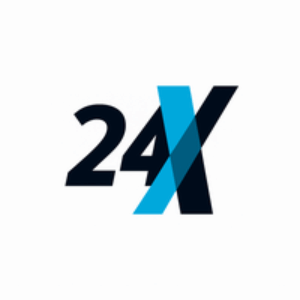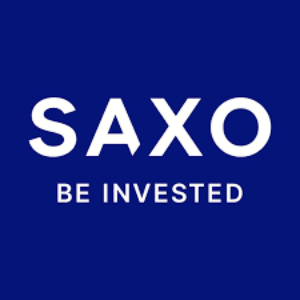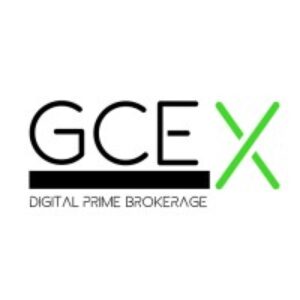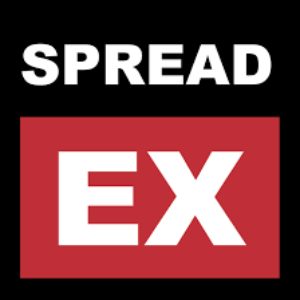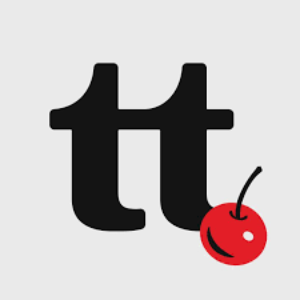
INVESTING
Crypto Exchanges/Brokers
Monitored brokers who operate on the Forex market so that you and other traders can access reliable information about each broker company
- Over 25 years in the industry with millions of clients worldwide.
- Regulated by CySEC, ensuring compliance with European financial standards.
- Transparent zero-spread trading with fixed per-trade commissions.
- Intuitive WebTrader and mobile app designed for beginner-friendly use.
- Offers MT4 and MT5 platforms with advanced tools and automation.
- Trade forex, stocks, commodities, crypto, ETFs, and indices.
- Access to educational resources and strategy guides for all levels.
- Per-trade commissions may be higher despite zero spreads.
- Customer support is limited to business hours only.
- Not available in the U.S., Canada, or Japan.
- No option for Islamic (swap-free) trading accounts.
- Zero trading fees help users maximize profits without extra costs
- Offers up to 50x leverage to amplify positions across markets
- Millisecond latency ensures fast and seamless order execution
- Access to over 100 markets including crypto, stocks, gold, and commodities
- Built on Starknet and Ethereum for enhanced on-chain security
- Intuitive interface suitable for both novice and experienced traders
- Focuses mainly on perpetual futures, with limited asset class diversity
- Operates without traditional regulatory oversight as a decentralized exchange
- May require a learning curve for users new to decentralized platforms
- Mobile app offers fewer features compared to the desktop version
- Lacks conventional customer support, relying on forums and documentation
- 24/7 Trading Availability: Offers round-the-clock access to supported markets, including spot FX, NDFs, and crypto NDFs.
- Regulated by BMA: Operates under the oversight of the Bermuda Monetary Authority, ensuring adherence to international compliance standards.
- Unified Platform: Provides access to multiple asset classes—FX, crypto, and U.S. equities—on a single trading infrastructure.
- Proprietary Technology: Enables seamless integration through FIX API and ensures low-latency, high-efficiency execution.
- No Last Look: Ensures transparency and fairness by eliminating last-look pricing practices common in FX markets.
- Institutional-Only Access: Retail traders are not eligible to open accounts or trade on the platform.
- Limited Public Information: Trading volumes, user base, and financial performance metrics are not disclosed on the website.
- Lack of Promotions: No marketing offers, incentives, or loyalty programs due to its institutional focus.
- No Mobile App: Currently, there's no mention of mobile trading support on the website.
- Geographic Restrictions: Services are unavailable in certain jurisdictions due to regulatory compliance.
- Saxo offers access to over 71,000 instruments, including forex, stocks, ETFs, bonds, options, futures, commodities, and crypto ETPs, giving traders unparalleled diversification opportunities.
- The SaxoTraderGO and SaxoTraderPRO platforms are highly regarded for their intuitive design, advanced charting tools, and powerful functionalities suited for both retail and professional traders.
- Saxo is licensed by multiple top-tier financial regulators, including the FCA (UK), MAS (Singapore), and ASIC (Australia), ensuring a high level of client protection and operational transparency.
- Saxo provides a wealth of market insights, webinars, tutorials, and trading strategies to help clients make informed investment decisions.
- Higher-tier account holders (Platinum and VIP) benefit from lower fees, better service, and personalized relationship management.
- Accessing better spreads and services through Platinum and VIP accounts requires a substantial minimum deposit.
- Saxo charges inactivity fees if an account remains dormant for an extended period, which can deter occasional traders.
- Although transparent, Saxo’s commission and fee structures can be complex and may require careful review to fully understand potential trading costs.
- Due to regulatory constraints, Saxo’s services are not available to clients based in the United States.
- Multi-Asset Access: Offers trading in forex, crypto CFDs, indices, and commodities—all through a single prime brokerage.
- Regulated Across Multiple Jurisdictions: Holds licenses from the FCA (UK), FSA (Denmark), LFSA (Malaysia), and provisional approval from VARA (Dubai).
- Award-Winning Liquidity Provider: Recognized as the Best Crypto CFD Liquidity Provider for three consecutive years by the Global Forex Awards – B2B.
- Institutional-Grade Technology: Proprietary platforms under the XplorDigital® suite deliver fast execution and customizable white-label solutions.
- White-Label Solutions: Enables brokers to quickly deploy branded trading platforms through “Broker in a Box” and “Crypto in a Box.”
- No Retail Trading Access: Services are exclusively for institutional and professional clients, excluding individual retail traders.
- Limited Public Trading Education: Unlike retail brokers, GCEX does not offer public-facing educational materials or market analysis.
- Complex Onboarding for New Institutions: The setup process, while secure and thorough, may be slower due to compliance and verification protocols.
- No Proprietary Mobile App for Trading: While GCEX offers platform integrations, there’s limited native mobile trading functionality compared to some competitors.
- Regulated by the FCA: Spreadex is authorized and regulated by the Financial Conduct Authority (FCA) in the UK, ensuring a secure and compliant trading environment.
- Award-Winning Broker: Recognized multiple times for its trading platform, customer service, and spread betting services (e.g., City of London Wealth Management Awards, Good Money Guide Awards).
- No Commission on Spread Betting: Spread betting at Spreadex is commission-free, making it an attractive option for traders looking to reduce costs.
- Diverse Market Offerings: Offers over 1,000 tradable assets, including indices, forex, stocks, commodities, bonds, and cryptocurrencies.
- TradingView Integration: Provides advanced charting and analysis tools via TradingView, enhancing the trading experience for both beginners and professional traders.
- Interest-Free Credit Accounts Available: Traders can access credit accounts, subject to approval, allowing for more flexible trading strategies.
- Competitive Spreads: Spreadex offers relatively tight spreads compared to some competitors, making trading more cost-effective.
- Limited Availability Outside the UK: While Spreadex is expanding, its services are still primarily focused on UK traders, limiting global access.
- No MT4 or MT5 Support: Unlike many other brokers, Spreadex does not support MetaTrader 4 (MT4) or MetaTrader 5 (MT5), which may be a downside for traders accustomed to these platforms.
- Higher Minimum Deposit for Some Accounts: The platform has a £1,000 minimum deposit for credit accounts, which may not be suitable for beginner traders.
- No ECN Trading: Spreadex does not offer ECN trading, which means spreads may not always be as tight as those on ECN accounts with other brokers.
- Limited Educational Resources: Compared to other brokers, Spreadex provides fewer educational tools for beginners looking to learn trading strategies and market analysis.
- Commission-Free Trading – Alpaca offers commission-free trading for U.S. stocks, ETFs, and options, making it cost-effective for active traders.
- API-First Brokerage – The platform is designed with a developer-friendly API, allowing for automated and algorithmic trading.
- Fractional Share Trading – Users can invest in fractional shares, making it easier to trade expensive stocks with smaller amounts.
- Paper Trading Available – Alpaca provides a paper trading feature, allowing traders to test strategies in a risk-free environment.
- No Minimum Deposit Requirement – Users can start trading with no initial deposit, making the platform accessible to new traders.
- Business Trading Accounts – Alpaca supports corporate and institutional accounts, catering to fintech startups and businesses.
- Global Access – Alpaca is available in over 30 countries, providing international traders access to U.S. markets.
- Limited Asset Offerings – Alpaca primarily supports U.S. stocks, ETFs, and some crypto assets, lacking forex, commodities, and bonds.
- No Proprietary Trading Platform – The platform relies heavily on third-party integrations and lacks a full-fledged proprietary trading interface.
- Limited Research and Educational Tools – Compared to full-service brokers, Alpaca offers minimal research and educational resources for traders.
- Customer Support Limitations – Some users report slower response times from customer support, particularly for complex issues.
- Margin Trading Restrictions – Margin trading is available but may have restrictions compared to traditional brokers.
- Strong Regulatory Oversight: MultiBank Group is regulated by over 17 financial authorities worldwide, ensuring compliance and client security.
- Diverse Asset Selection: Offers more than 20,000 financial instruments across forex, commodities, indices, stocks, metals, and cryptocurrencies.
- Multiple Trading Platforms: Supports MT4, MT5, and MultiBank-Plus, catering to different trading preferences.
- Tight Spreads & Competitive Pricing: Provides low spreads starting from 0.0 pips and high leverage options.
- Fast Order Execution: Uses advanced technology to ensure rapid trade execution with minimal slippage.
- Secure and Segregated Funds: Client funds are held in segregated accounts with top-tier banks, enhancing security.
- Award-Winning Broker: Recognized globally for its trading services, including the Best Global Regulated Broker 2024 award.
- Strong Customer Support: Provides multilingual support via live chat, phone, and email.
- No Deposit Fees: Allows free deposits across multiple payment methods, making transactions more convenient.
- High Minimum Deposit for Premium Accounts: While standard accounts have accessible deposit requirements, professional and VIP accounts require significantly higher funding.
- Limited Educational Resources: Compared to some competitors, MultiBank Group offers fewer training materials and educational resources for beginners.
- Inactivity Fees: Charges an inactivity fee if an account remains dormant for an extended period.
- Restricted in Certain Regions: Does not accept clients from certain jurisdictions, including the U.S., Canada, and some other regulated markets.
- No Proprietary Trading App: While MultiBank-Plus is available on mobile, the broker does not have a dedicated mobile app like some competitors.
- Low-cost trading: Commission-free stock and ETF trading, with competitive options and futures pricing.
- Advanced trading tools: A feature-rich trading platform with powerful analytics, customizable charts, and fast execution.
- Focus on active traders: Designed specifically for options and futures traders, offering specialized tools and resources.
- Educational resources: Extensive trading education through Tastylive, including live shows, market analysis, and strategy discussions.
- Innovative trading experience: Created by the founders of thinkorswim, ensuring a seamless and intuitive interface for experienced traders.
- Strong regulatory oversight: Registered with FINRA, SEC, NFA, and SIPC, ensuring compliance with financial regulations.
- Paper trading availability: A demo mode for traders to test strategies without real money risk.
- Not beginner-friendly: The platform has a steep learning curve, making it challenging for new traders.
- Limited asset selection: Does not offer forex or mutual funds, focusing primarily on stocks, options, and futures.
- Basic mobile app: The mobile platform lacks some of the advanced features available on the desktop version.
- No managed investment services: No robo-advisory or portfolio management options, limiting its appeal to passive investors.
- Regulated and Secure – Swissquote is regulated by FINMA, ensuring strong security and compliance with Swiss banking laws.
- Wide Range of Assets – Offers trading in forex, stocks, bonds, ETFs, options, futures, and cryptocurrencies.
- Banking Services – Provides integrated banking solutions alongside trading, including savings accounts and mortgage services.
- Publicly Traded Company – Listed on the SIX Swiss Exchange, adding transparency and credibility.
- Innovative Trading Tools – Advanced charting, market analysis, and automated trading features.
- Strong Educational Resources – Offers webinars, trading guides, and in-depth research for traders of all levels.
- Excellent Trading Platforms – Supports MetaTrader 4, MetaTrader 5, and its proprietary Advanced Trader platform.
- Multi-Currency Accounts – Allows traders to hold funds in multiple currencies without frequent conversions.
- High Minimum Deposit – The entry-level account requires a relatively high initial deposit compared to other brokers.
- Inactivity Fees – Charges fees for dormant accounts, which can be costly for inactive traders.
- Limited Promotions or Bonuses – Unlike some competitors, Swissquote does not frequently offer trading bonuses.
- No 24/7 Customer Support – Support is available during working hours, but not 24/7.
© 2026 PIP PENGUIN
Disclaimer Notices
The content on this site encompasses general news, our analyses, opinions, and material from third-party sources, all designed for educational and research aims. It is not meant as direct advice or a prompt to undertake any specific action, including investments or purchases. Before making financial decisions, we urge you to conduct thorough research, exercise personal judgment, and consult with professionals. The content is not tailored to individual financial circumstances or needs. Information on this website might not be in real-time or entirely accurate, with prices potentially sourced from market participants rather than exchanges. Any financial decisions you make are your sole responsibility, and reliance on any site information is at your own risk. PipPenguin makes no guarantees regarding the website’s information accuracy and will not be liable for any trading losses or other losses incurred from using this site. The site may contain ads and promotional content, for which PipPenguin could receive third-party compensation. However, this does not imply endorsement or recommendation of any third party’s services, and we are not responsible for your use of any external site or service. PipPenguin and its staff, executives, and affiliates disclaim liability for any loss or damage from using the site or its information.
Risk Disclaimers
This site provides information on cryptocurrencies, CFDs, and various financial instruments, along with details about brokers and trading platforms. These instruments are complex and carry a significant risk of loss. It’s important to fully understand how they work and assess if you can afford the associated risks before investing. We encourage doing extensive research before any investment and caution against investing in instruments that are not fully understood.


